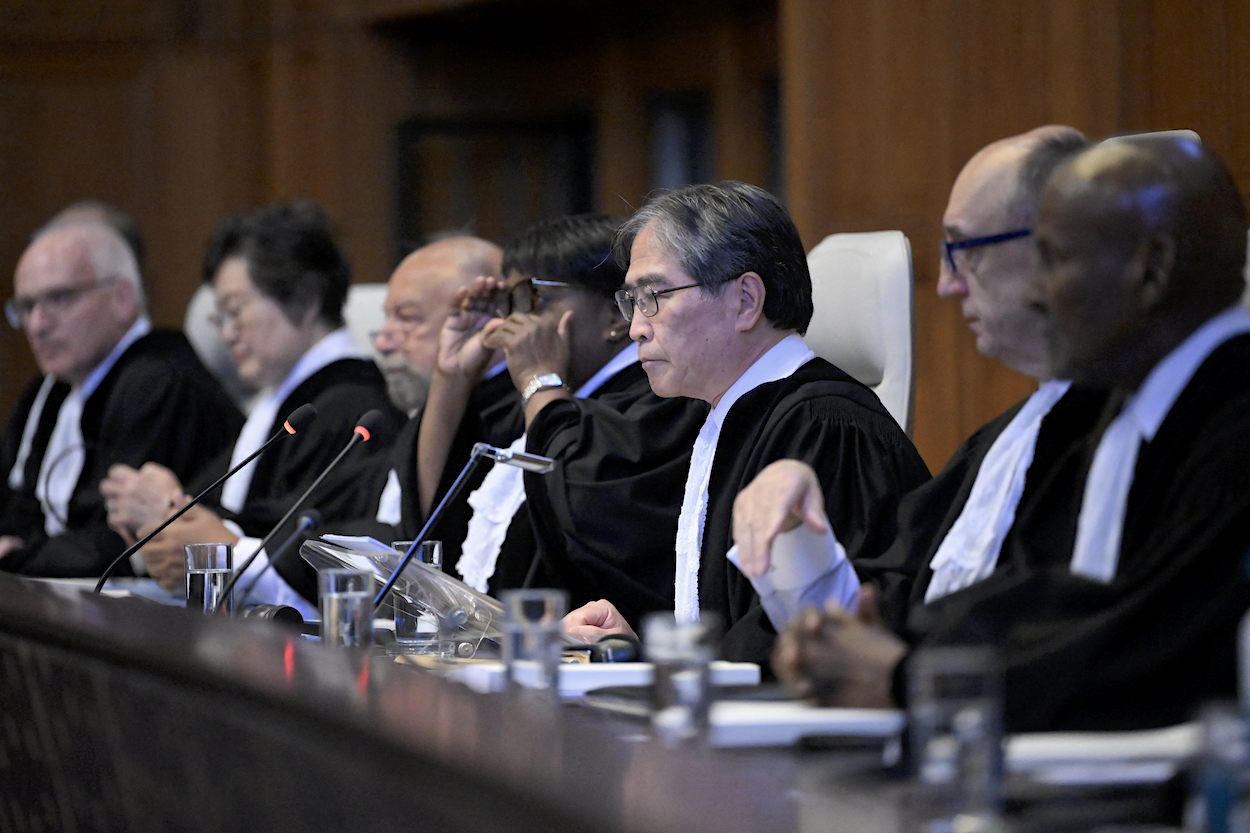Last week, 15 judges from the International Court of Justice at the Vredespaleis in the Hague, at the request of the UN General Assembly, pronounced solemnly on climate change. Every state, they said, owed duties in international law to take all reasonable measures to suppress climate change; duties, they added, which included exercising control over the activities of private companies. Furthermore, they went on, any state that had broken that duty faced potential claims for compensation from any other state that had suffered damage.
Environmental activists went wild. Organisations such as Amnesty and Greenpeace swiftly welcomed the new era where polluting countries (meaning states like such as the US, the UK, Europe and Australia) would be accountable for their, and their corporations’, effects on the third world. There was talk of massive claims for reparations, and climate change lawyers rubbed their hands together.
All this sounds simple, if depressing, but actually things are rather different. There is an awful lot of slippage between the ponderous pronouncement in the Hague, and the prospect of a judgment constraining the US or the UK to pay away trillions to third world countries in respect of past environmental sins. Here’s why.
First, the climate change activists and those on the international law circuit would like you to think of the International Court of Justice as being a bit like the High Court in the Strand, only bigger: an august and impartial body that you don’t argue with once it has spoken, and whose orders you obey without question. But that’s not how international law is applied in practice. Despite the word ‘law’, most of it is more fluid and up for negotiation. The Hague court is, as everyone knows, a highly political body quite unlike any national court. It has no means of physically enforcing its judgments, relying ultimately on respect from the international community.
Furthermore, when it comes to earning that respect, that same court, which when founded in 1952 was held in extraordinarily high regard, has recently taken something of a hit. Its 2023 order against Israel over operations in Gaza, and its earlier 2017 advisory opinion against the UK over the Chagos Islands, were seen by many as more like political posturing by the progressive anti-Israel and anti-colonialist set than genuinely unbiased decisions.
Put bluntly, the UK has every prospect at the end of the day of preventing itself being successfully sued over climate change.
The ICJ ruling wasn’t even a judgment. It was a mere advisory opinion, rendered by the ICJ for the benefit and information of its paymaster the UN, and as a matter of international law binding on no-one. And, for boringly legal reasons, there would be serious difficulties about any future climate change claims. The ICJ’s jurisdiction to hear such claims depends on agreement by states to accept it. And while the UK has in principle agreed to accept the court’s compulsory jurisdiction, this is subject to big caveats. Events before 1987 are out, which seems to exclude all historic claims. So are claims by Commonwealth countries, which cuts out a great many potential Pacific claimants. Further, the UK can always add to the exclusions. In 2017 we added an exception relating to nuclear events following a controversial ICJ decision in 2016 which might have laid us open to big claims from Pacific nations. We could (and if push comes to shove, should) do the same on climate change today if we wanted.
In other words, if the will is there, we can ride out this storm. But the words ‘if the will is there’ matter. Most countries are pragmatic about international law, seeing it as something to be manipulated, circumvented where possible and where necessary discreetly ignored. The Prime Minister and his Attorney-General Lord Hermer are unfortunately not like this. They are both true believers, of a worrying kind normally found only in university law faculties and the UN bureaucracy, in the transcendental virtue of international law and the need to subordinate all national interests to it. We have already seen this happen. Recall the government’s disgraceful caving to Mauritian demands over Diego Garcia, which arose for fear of being sued in the ICJ.
There is a distinct danger that the government will now want to repeat history and open negotiations for climate reparations. It needs reminding of two things. First, its duty is owed to the people of this country. And secondly, a government that sacrifices those interests for the sake of setting a good international example excites not respect, but rather contempt and a desire to take it to the cleaners for all it is worth.








Comments